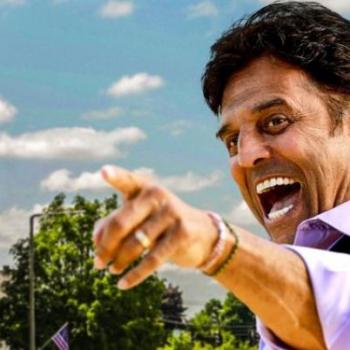The unfolding story of Asia Bibi, who has been sentenced to hanging for blasphemy in Pakistan, probably seems remote and exotic to most Americans. According to most reports, she was found guilty of not affirming that Mohammed is the ultimate prophet during a heated exchange with fellow farm workers. She is a Christian. This is the typical use of a blasphemy law—persecution of nonbelievers. Pakistan is a country of over 165 million, with less than 3% non-Muslim.
Under international pressure, the president of Pakistan considered pardoning Bibi, but the radical Muslim clerics have threatened terrorism around the globe if her execution is not carried out. No one, on their terms, may mouth beliefs that contrast with theirs. There is one truth—theirs. Pakistan must now decide to follow the tyranny of jihadist mullahs or the calls for human rights from the West.
This barbaric penalty is being visited upon a mother of young children, and is being fought by human rights groups and western countries. From where most Americans stand, this is likely another indictment of the Muslim religion, and another reason to re-assert the Christian heritage of the United States. To put it another way, one lens upon this situation would cast all Muslims as villains and all Christians as victims or saints.
Before we follow that reasoning, let us revisit our own history. It is there that we can find a saner way of understanding what is wrong in Pakistan, for something surely is, and learn what needs to happen there and elsewhere in the world to protect us from irrational despots.
In fact, the Pakistan situation echoes our own early church establishments.
When the Puritan clergy ruled Massachusetts, blasphemy laws were in effect, and severe penalties were meted out to those who expressed beliefs contrary to those mandated by the clergy. Quakers were killed; Baptists were harassed and taxed for their beliefs; and those like Anne Hutchinson and Roger Williams were sent away. The Salem witch trials and executions are just one vivid example of how such a culture deals with those who do not automatically fit into the cultural fabric and how governments dominated by clergy mete out severe punishments to preserve their governing authority.
The United States no longer permits clergy to hold such power, and no government to be the handservant to religious edicts. There is a separation of church and state, a phrase coined by Roger Williams and embraced by the oppressed Baptists, that has kept the two most authoritative structures of human existence—government and clergy—from joining forces against nonbelievers or outsiders. The Joint Baptist Committee deserves tremendous praise for its ongoing outreach in favor of separation, as do many other organizations like Americans United for Separation of Church and State, and the state civil liberties unions, among others. These organizations, whose mission is often maligned by the "Christian country" crowd, should be leading the world discussion on the foundation of true liberty: a separation of powers between church and state.
The Pakistani government faces a difficult but obvious choice here. The government can only lose if it hangs Bibi. One cannot discount the sincerity of the jihadists rattling their terrorist sabers and threatening mass destruction if this Christian woman is not hanged. But the world can gird itself against these rogues. The Pakistani government must know that if it accedes to the mullahs' demands this time, it will lose even more power than it already has. This is a battle for power, pure and simple. Ironically, the world will be safer if the government fights for its power over justice and rejects the mullahs' dictatorial demands.
The world awaits—as does Asia Bibi—to see if Pakistan will move backward to the dark era when human liberty is forcefully circumscribed by a narrow circle of clerics, or will move forward. Pakistan must reject the clergy's determination to deny justice to nonbelievers.
12/29/2010 5:00:00 AM





